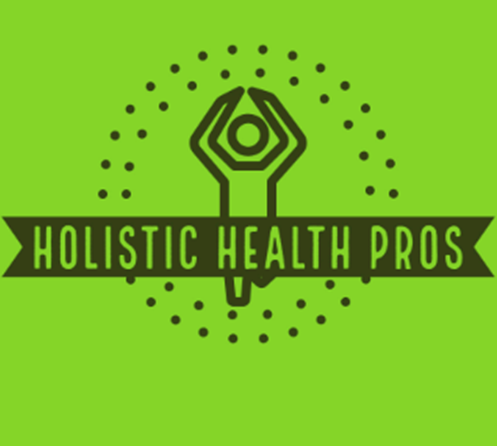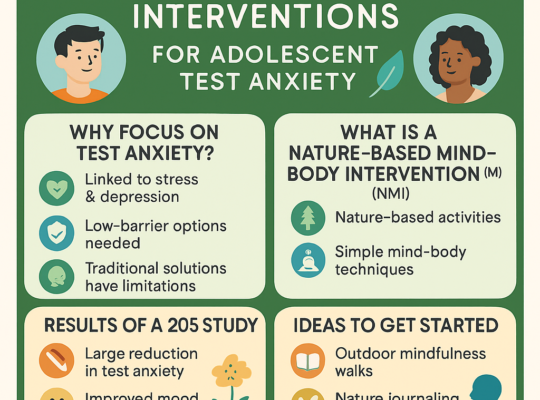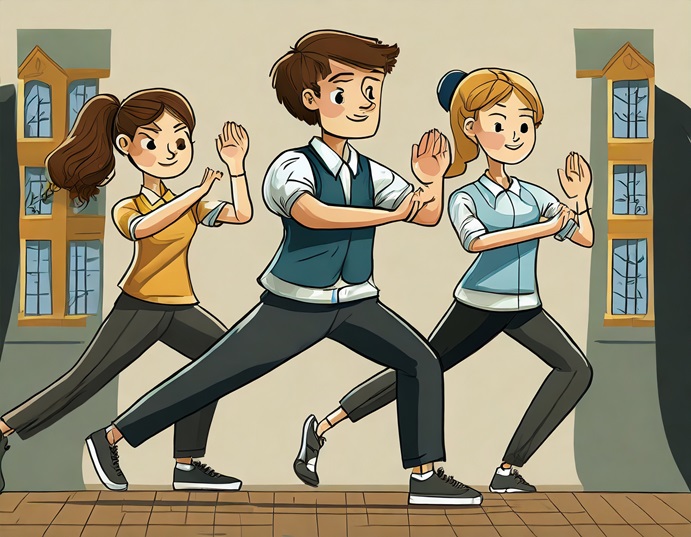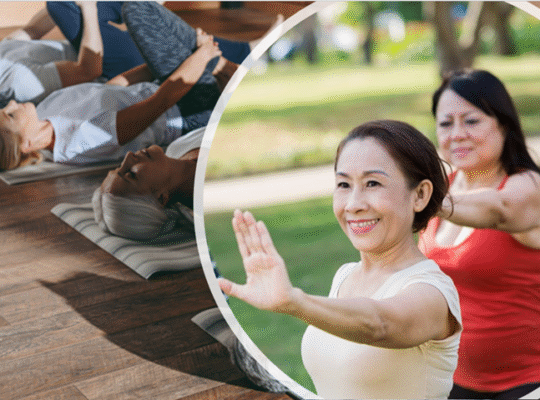An Unconventional for a Psychological Counselor
Dr. Nyang is a LCPC (Licensed Clinical Professional Counselor) and Tai Chi Practitioner certified by American Tai Chi & Qigong Association. She holds a master’s degree in counseling and a doctorate degree in counseling psychology.
(You can find more about Dr. Nyang’s classes and contact information at the bottom of this article.)
When working with all her clients, she must use Cognitive Behavioral Therapy (CBT) because they are trained in graduate school to develop a theoretical orientation to use when working with clients. She integrates Tai Chi with CBT into her work with clients, and many find it very useful. Other clients prefer only to use CBT.
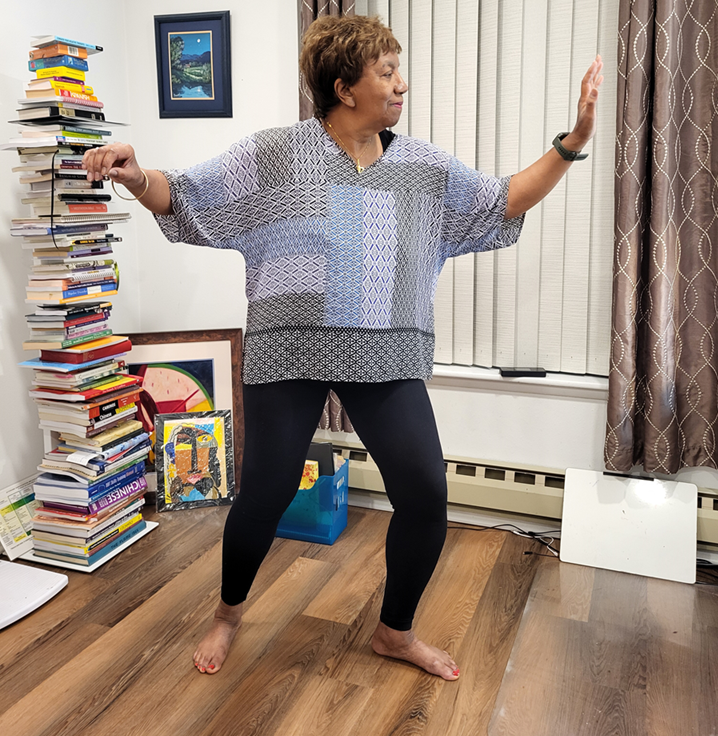
The clients that use Tai Chi find it relaxing to use a mind-body exercise to help them lessen their focus on negative and unwanted thoughts. Usually, they learn to practice Tai Chi in silence. When helping clients, she uses Tai Chi as a guided meditation to help them learn to focus their attention on their Tai Chi movements and not on unwanted thoughts.
A Client with a High Level of Stress and Anxiety from Work
A client that she worked with online was experiencing a high level of stress and anxiety because his supervisor accused him of not following office procedures during a staff meeting. She used Tai Chi as a guided meditation. She demonstrated how to do “Open and Close the Door”. She asked the client to relax his body, close his eyes, and take a deep belly breath. He did “Open the Door” with his eyes closed. As he raised his arms and hands slowly, she asked him to imagine pulling up peace and tranquility and to let that feeling of peace and tranquility enter his body as he continued to do slow belly breaths. As he closed the door, he was asked to relax his body and to imagine stress and negative thoughts floating away. As he continued the movement, he would repeat that peace and tranquility comes in when opening the door and negative thoughts go out when he closes the door. After opening and closing the door for 15 minutes, they did CBT focused talk therapy for 45 minutes. The client did this exercise at home two to three times a day for 15 minutes, and it was relaxing for him. He mentioned that it felt meditative to him, and he wanted to learn other Tai Chi forms.
A Client Who Got Fired from Job
She had another client that had ADHD and was recently fired from his office job. He mentioned that the job was too much for him emotionally. He was familiar with Tai Chi and did Tai Chi for 1-2 hours a day at home. We did talk therapy virtually. During our sessions, she used different Tai Chi movements to help him focus on building positive thoughts. For example, they used “Single Whip” to release the negative and hold onto the positive. The hand making the beak represents positive thoughts and things the client wants to hold onto, while the hand with the palm facing outward represents negative thoughts and things the client wants to release and let go of. We worked together for three months, and the client found a job that he felt more comfortable in.
Incorporating Tai Chi into Psychological Counseling
She describes Tai Chi, suggests its use, and demonstrates it to clients and other therapists. The clients receive an article in Psychology Today about the benefits of Tai Chi, and the therapists receive research articles on the mental health benefits of Tai Chi. The online course contains several videos describing how she uses Tai Chi when working with clients and a bibliography of research articles. Many therapists and clients feel the benefits of using Tai Chi after a couple of sessions.
If you are interested in integrating Tai Chi into your private practice, do some research to understand what Tai Chi is and how it can positively impact mental health. Find creative ways to use Tai Chi. For example, prepare scripts for meditations you can use to help clients work through their specific issues. Some clients may only be interested in doing the “Tai Chi walk” for meditation. Others may want to use the “Tai Chi walk” and one or two movements to help lessen their anxiety and stress levels.
You can always contact Dr. Nyang for advice and information on how to integrate Tai Chi into your private practice. She also teaches an online Tai Chi course for Mental Health Therapists! The title of the course is Integrate Tai Chi into Your Mental Health Practice. After completing the course, the therapist will receive 6 Continuing Education credits from CE-Classes.
She can be reached at 301-309-4243 and enyang@aol.com.
